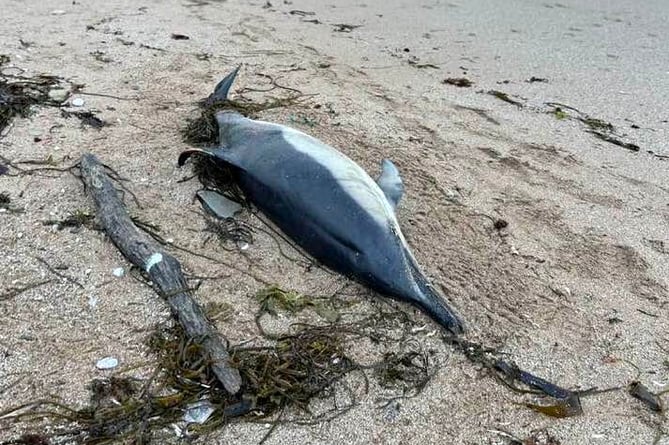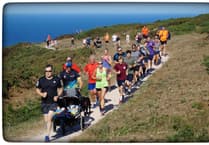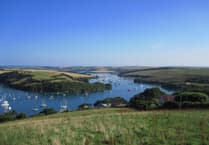The body of a dead dolphin was found washed up at the weekend on a small beach at Thurlestone, near Kingsbridge.
According to one comment posted on the social media platform, the site of a dead dolphin at the Thurlestone beach “is a fairly common occurrence”.
In December 2020, four dead dolphins were washed up on the same beach in what the press described as an unusual incident at the time. The discovery was particularly gruesome as parts of their bodies had reportedly been hacked off. The dolphin found on Sunday (August 13) appeared intact, however.
Two years earlier, this paper reported the discovery of another dead dolphin washed up on the same beach, which was thought to have been a victim of by-catch. Prior to that, in 2016, another dead dolphin washed up on the same Thurlestone Sands beach. It was described by local marine expert Lindy Hingley as a “fully grown, large, female” that may have been pregnant.
Incidents of this type are normally investigated by the CSIP, which is a government-funded body tasked with analysing cetacean strandings around the coast of the UK and determining the causes of death.
According to the CSIP’s research, a total of 17,850 strandings have been recorded in the UK since the organisation’s inception in 1990, with necropsies carried out on 4,500 of the cetaceans. Among the most common causes of death, the CSIP lists by-catch, chemical pollutants, and the effects of naval sonar and decompression sickness.
In its advice to the public, anyone who finds a dead cetacean should avoid direct contact with the animal and give a clear description of its location, the species, if known, and its overall condition.
The CSIP’s hotline is 0800 652 0333 to report dead strandings, or 01825 765546 if the animal is still alive.
Lindy Hingley of the Brixham Sea Watch can also be contacted on 07712 587799.




